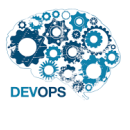DevOps is the union of people, process and products to enable the continuous delivery of value to end users. It aims to create a culture and environment where building, testing, and releasing software can happen rapidly, frequently, and more reliably, so you can innovate like a startup and scale for the enterprise. By taking this introductory DevOps course, youâ??ll be able to define DevOps, understand why you need DevOps, and learn how you can get started with DevOps
DevOps Course Content:
Source Code Management â?? GIT
Introduction to GIT
Installation and Configuration
User Management in GIT
Managing Projects under GIT
Understanding Tags, Branches and Trunk
Code Quality Analysis â?? SONARQUBE
Introduction to SONARQUBE
Installation and Configuration
User Management
Importing and analyzing Projects
Build Script â?? MAVEN/ GRADLE
Introduction
Installation and Configuration
Understanding Maven/Gradle Archetype
Creating Maven/Gradle Projects
Building Project using Maven/Gradle
Configuration Management â?? PUPPET
Introduction to Puppet
Installation and Configuration of Master server and agents
Managing Manifests
Creating and managing modules
Configuration Management â?? ANSIBLE
Introduction to ANSIBLE
Installation and Configuration of server
Configuring connection between server and clients
Creating playbooks and testing it
Continuous Integration â?? JENKINS
Continuous Integration with Jenkins Overview
Installation
Configure Jenkins as stand-alone application
Jenkins management
Support for the GIT version control systems
Different types of Jenkins Jobs
Setting up a Jenkins job
Scheduling build Jobs
Jenkins Plugin
Monitoring â?? Nagios
Introduction
Installation and Configuration
How to monitor the Servers in Nagios
Configure Nagios client
Writing Probes for Nagios
How to check events; CPU, Memory and RAM Graphs for servers









